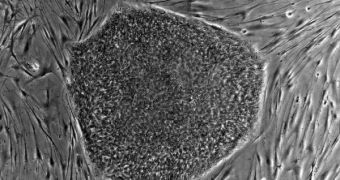Experts know that the females of most species of mammals, including humans, stop producing eggs, known as oocytes, soon before birth, and that the number of eggs they are born with is the number they will have for the rest of their lives. Challenging this knowledge, researchers in China have recently announced that they have managed to create mice oocytes from stem cells taken from the ovaries of young and old female mice alike. The discovery could have tremendous implications for human infertility treatments, and could help countless women mother babies in a more natural way than through IVF.
At this point, the only solution for infertile women is to undergo in-vitro fertilization (IVF), a course of treatment that cannot guarantee success, and which can also result in multiple children. This could be a problem for those who only want to have one child, so, if the new research can be developed to be applied in humans, it could potentially revolutionize fertility treatments altogether. “The finding may have important implications in regenerative and reproductive medicine,” the Chinese researchers write in a recent issue of the journal Nature Cell Biology, Reuters reports.
“Sperm are produced continuously in men, but the number of eggs in women is fixed at birth. This new study in mice now suggests that there are also stem cells present in ovaries that can be cultured in a dish, which upon transfer to ovaries can develop into viable eggs and give rise to offspring. This finding, if confirmed independently, could advance understanding of these ovarian stem cells and advance research on female infertility,” University of Cambridge Gurdon Institute Professor of Physiology and Reproduction Azim Surani adds.
In charge of the new research has been Shanghai Jiao Tong University School of Life Science and Biotechnology expert Ji Wu, who has harvested female germline stem cells (FGSC) from mice that were either only 5 days old or already adults. “These results suggest that oocytes can be regenerated in sterile recipient females by transplantation of FGSCs,” he shares in the study.

 14 DAY TRIAL //
14 DAY TRIAL //